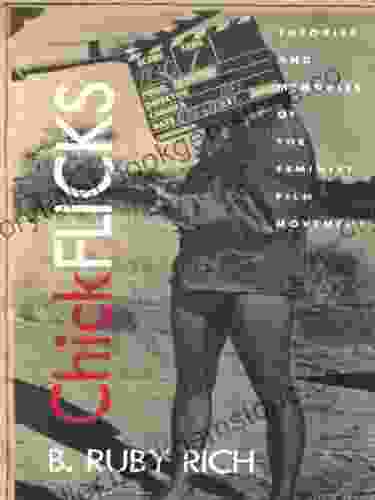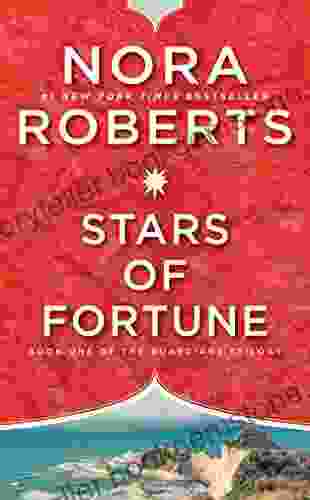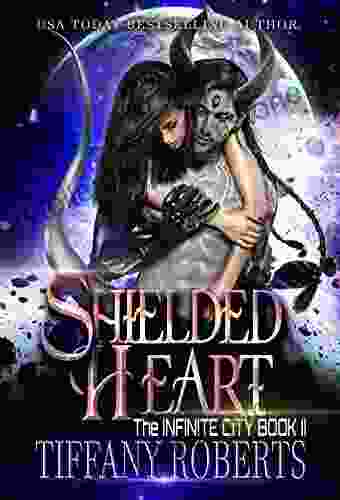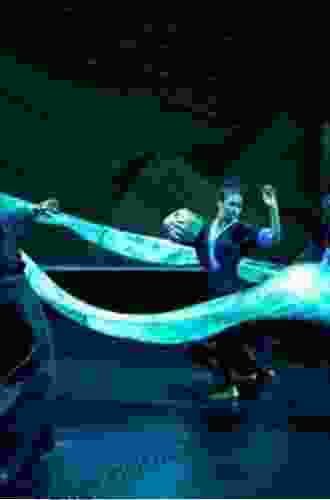Theories and Memories of the Feminist Film Movement

The feminist film movement has a rich and complex history. It is a movement that has been shaped by a variety of different theories and perspectives, and by the personal experiences of the women who have been involved in it. In this essay, I will explore some of the key theories and memories that have shaped the feminist film movement.
4.6 out of 5
| Language | : | English |
| File size | : | 2036 KB |
| Text-to-Speech | : | Enabled |
| Screen Reader | : | Supported |
| Enhanced typesetting | : | Enabled |
| Word Wise | : | Enabled |
| Print length | : | 450 pages |
The Early Years
The feminist film movement began in the late 1960s and early 1970s, as part of the broader women's liberation movement. At this time, a number of women began to critique the ways in which women were represented in film. They argued that women were often portrayed as passive, sexual objects, and that this representation reinforced sexist stereotypes. These critiques laid the foundation for the feminist film movement, and they continue to be important today.
One of the most important early feminist film theories was the theory of the "male gaze." This theory, developed by Laura Mulvey, argues that films are typically made from a male perspective, and that this perspective objectifies women. Mulvey's theory has been influential in feminist film criticism, and it has helped to raise awareness of the ways in which women are often represented in film.
Another important early feminist film theory was the theory of the "female spectator." This theory, developed by Claire Johnston, argues that women have a different way of watching films than men. Johnston argues that women are more likely to identify with female characters, and that they are more likely to be critical of films that perpetuate sexist stereotypes. The theory of the female spectator has been influential in feminist film criticism, and it has helped to create a space for women's voices in film studies.
The 1970s and 1980s
The feminist film movement continued to grow in the 1970s and 1980s. During this time, a number of important feminist films were made, including Thelma & Louise (1991),Boys Don't Cry (1999),and Monster (2003). These films challenged traditional gender roles and stereotypes, and they helped to raise awareness of the experiences of women. In addition, a number of feminist film festivals were founded during this time, providing a space for feminist filmmakers to showcase their work.
During the 1970s and 1980s, feminist film theory also continued to develop. One of the most important developments was the emergence of the theory of "intersectionality." This theory, developed by Kimberlé Crenshaw, argues that women experience oppression in different ways, depending on their race, class, and sexual orientation. The theory of intersectionality has been influential in feminist film criticism, and it has helped to create a more nuanced understanding of the experiences of women.
The 1990s and 2000s
The feminist film movement continued to grow in the 1990s and 2000s. During this time, a number of important feminist films were made, including Clueless (1995),The Craft (1996),and Girlfight (2000). These films continued to challenge traditional gender roles and stereotypes, and they helped to raise awareness of the experiences of women. In addition, a number of feminist film archives were founded during this time, preserving the history of the feminist film movement.
During the 1990s and 2000s, feminist film theory also continued to develop. One of the most important developments was the emergence of the theory of "queer theory." This theory, developed by Judith Butler, argues that gender is not a binary, but rather a spectrum. The theory of queer theory has been influential in feminist film criticism, and it has helped to create a more inclusive understanding of gender.
The Future of the Feminist Film Movement
The feminist film movement is a vibrant and dynamic movement that continues to grow and evolve. There are a number of important challenges that the movement faces, but there are also a number of opportunities for growth. One of the most important challenges is the lack of representation of women in the film industry. Women are still underrepresented in all areas of the film industry, from directing to writing to producing. This lack of representation limits the opportunities for women to tell their stories, and it reinforces sexist stereotypes. However, there are also a number of opportunities for growth. The feminist film movement is gaining momentum, and there is a growing demand for feminist films. This demand is creating opportunities for women to make films that challenge traditional gender roles and stereotypes.
The future of the feminist film movement is bright. The movement has a rich history, and it is supported by a growing number of women who are passionate about creating feminist films. The feminist film movement has the potential to make a significant contribution to the world by challenging sexism and stereotypes, and by creating a more inclusive and just society.
The feminist film movement is a complex and multifaceted movement that has a rich history and a bright future. The movement has been shaped by a variety of different theories and perspectives, and by the experiences of the women who have been involved in it. The feminist film movement has challenged traditional gender roles and stereotypes, and it has helped to raise awareness of the experiences of women. The movement has also created a space for women to tell their stories, and it has helped to create a more inclusive and just society.
4.6 out of 5
| Language | : | English |
| File size | : | 2036 KB |
| Text-to-Speech | : | Enabled |
| Screen Reader | : | Supported |
| Enhanced typesetting | : | Enabled |
| Word Wise | : | Enabled |
| Print length | : | 450 pages |
Do you want to contribute by writing guest posts on this blog?
Please contact us and send us a resume of previous articles that you have written.
 Best Book
Best Book Page Flip
Page Flip Bookshelf
Bookshelf Literary loom
Literary loom Chapter
Chapter Bookish
Bookish PageTurner
PageTurner Bibliophile
Bibliophile Story
Story Inkwell
Inkwell Bookworm
Bookworm Labyrinth
Labyrinth Plot Twist
Plot Twist Prose
Prose Paperback
Paperback Storyteller
Storyteller Sanctuary
Sanctuary Fiction
Fiction Reading
Reading Chronicle
Chronicle Read
Read Axel Hacke
Axel Hacke Eric Broudy
Eric Broudy Ashley Brantley
Ashley Brantley Rosemary Sullivan
Rosemary Sullivan Annemarie Bean
Annemarie Bean Antony Kamm
Antony Kamm Deborah Paris
Deborah Paris Arlo Adams
Arlo Adams James Rosone
James Rosone Michael Evamy
Michael Evamy Jay Boyce
Jay Boyce Jason Waguespack
Jason Waguespack Ernst Lehner
Ernst Lehner John Scarne
John Scarne Avanti Centrae
Avanti Centrae Aubrey A Jones
Aubrey A Jones Nicholas Sansbury Smith
Nicholas Sansbury Smith George Huppert
George Huppert Ashlee Vance
Ashlee Vance Clive Hallett
Clive Hallett Peter Turchi
Peter Turchi David Deal
David Deal Anthony M Strong
Anthony M Strong Vernor Vinge
Vernor Vinge Antonia Fraser
Antonia Fraser Todd Barry
Todd Barry Scott Westerfeld
Scott Westerfeld Annemieke Mein
Annemieke Mein George Rathmell
George Rathmell Nicole Casey
Nicole Casey Sarah Vallance
Sarah Vallance Carl Stubblefield
Carl Stubblefield Franklin Horton
Franklin Horton Anton Roux
Anton Roux B Russell Mcconkie
B Russell Mcconkie W A Bentley
W A Bentley Chris Weyers
Chris Weyers Fifi O Neill
Fifi O Neill D Levesque
D Levesque Karen Ordahl Kupperman
Karen Ordahl Kupperman Margaret Walker
Margaret Walker Joe Abercrombie
Joe Abercrombie Paul Steinberg
Paul Steinberg Tony Randgaard
Tony Randgaard Annie Keary
Annie Keary Austin Howe
Austin Howe Julie Nelson Davis
Julie Nelson Davis Robert J Serling
Robert J Serling Approach Guides
Approach Guides Morgan Rogers
Morgan Rogers James Maskalyk
James Maskalyk Mary Maccracken
Mary Maccracken Valerie Biden Owens
Valerie Biden Owens Dirk Hayhurst
Dirk Hayhurst Shugri Said Salh
Shugri Said Salh Tia Williams
Tia Williams Destiny Davis
Destiny Davis Geoff Schumacher
Geoff Schumacher Robert Graysmith
Robert Graysmith Arrigo Cipriani
Arrigo Cipriani Anthony Ryan
Anthony Ryan Stephen Moss
Stephen Moss Ava Archer
Ava Archer Elena M Watson
Elena M Watson T R Todd
T R Todd Francesca Fiorani
Francesca Fiorani Mimi Kwa
Mimi Kwa Quentin Tarantino
Quentin Tarantino Pat Hall
Pat Hall Oliver Mayes
Oliver Mayes Riva Lehrer
Riva Lehrer James D Umbach
James D Umbach Anthony M Amore
Anthony M Amore B B Thatcher
B B Thatcher Carne Griffiths
Carne Griffiths Oscar Zeta Acosta
Oscar Zeta Acosta Jt Sawyer
Jt Sawyer Jean Guerrero
Jean Guerrero Robert Beverly Hale
Robert Beverly Hale Matthew Jm Carpenter
Matthew Jm Carpenter Maxine Leeds Craig
Maxine Leeds Craig Lizzie Williams
Lizzie Williams Haruki Murakami
Haruki Murakami Kim Erwin
Kim Erwin Diana Kupershmit
Diana Kupershmit Br Kingsolver
Br Kingsolver Anne Moody
Anne Moody Antonis Tsagaris
Antonis Tsagaris Colby Buzzell
Colby Buzzell Catherine E Mckinley
Catherine E Mckinley Kyunghee Pyun
Kyunghee Pyun Anne Hillerman
Anne Hillerman Ayn Rand
Ayn Rand Lorraine Caputo
Lorraine Caputo Nancy Nicholson
Nancy Nicholson Zharel Anger
Zharel Anger Sarah Winnemucca Hopkins
Sarah Winnemucca Hopkins Ashley Mahlberg
Ashley Mahlberg Billy Connolly
Billy Connolly Edward Achorn
Edward Achorn Jan Murphy
Jan Murphy Sheila O Flanagan
Sheila O Flanagan B Ruby Rich
B Ruby Rich Anne Rice
Anne Rice Gail Morin
Gail Morin Sarah Crafts
Sarah Crafts Mark Baskinger
Mark Baskinger Joseph Mcbride
Joseph Mcbride Art Wolfe
Art Wolfe Tony Hillerman
Tony Hillerman Kris Jenner
Kris Jenner Anthony Slide
Anthony Slide Stephan Talty
Stephan Talty Christine Denniston
Christine Denniston W Michael Blumenthal
W Michael Blumenthal Aziz Shihab
Aziz Shihab S C Jensen
S C Jensen Joan Tollifson
Joan Tollifson Robert Dugoni
Robert Dugoni Arthur Miller
Arthur Miller Tiffany Roberts
Tiffany Roberts Ray Bradbury
Ray Bradbury Scott Hughey
Scott Hughey Jaime Castle
Jaime Castle Claire Devarrieux
Claire Devarrieux R G Collingwood
R G Collingwood Brian Butko
Brian Butko Nancy Lee Mccaskill
Nancy Lee Mccaskill Linda Nagata
Linda Nagata Steven Bradley
Steven Bradley Chris A Norton
Chris A Norton Rebecca Serle
Rebecca Serle Wesley B Turner
Wesley B Turner Artemisia Gentileschi
Artemisia Gentileschi Gloria Mattioni
Gloria Mattioni Annette Insdorf
Annette Insdorf Arthur H Buckley
Arthur H Buckley Anton Treuer
Anton Treuer Rebecca Keegan
Rebecca Keegan Yasmin Angoe
Yasmin Angoe Christopher Griffin
Christopher Griffin Karl Ove Knausgaard
Karl Ove Knausgaard Gayatri Gopinath
Gayatri Gopinath Armin Weber
Armin Weber King Ellie
King Ellie Howling Moon Books
Howling Moon Books Eric Campbell
Eric Campbell Tamar Diana Wilson
Tamar Diana Wilson Shami Stovall
Shami Stovall Annette Gordon Reed
Annette Gordon Reed Elise Darcy
Elise Darcy Anne Richardson Williams
Anne Richardson Williams Anne Sebba
Anne Sebba Tony Peak
Tony Peak Sonia Misra
Sonia Misra Lonely Planet
Lonely Planet August Wilson
August Wilson Eric Warren
Eric Warren Peter Jazwinski
Peter Jazwinski Mary Renault
Mary Renault Kevin Mannens
Kevin Mannens Yuk Hui
Yuk Hui Kathy Kolbe
Kathy Kolbe Dennic Chunman Lo
Dennic Chunman Lo Gene D Phillips
Gene D Phillips Sari Botton
Sari Botton Asali Solomon
Asali Solomon Blackhorse Mitchell
Blackhorse Mitchell Charles Nordhoff
Charles Nordhoff Pamela Des Barres
Pamela Des Barres Fig Taylor
Fig Taylor Nora Roberts
Nora Roberts Peter James West
Peter James West Jeffrey Vonk
Jeffrey Vonk Austin Channing Brown
Austin Channing Brown Joan Baxter
Joan Baxter Sadhna Shanker
Sadhna Shanker Gina Rossi Armfield
Gina Rossi Armfield Arnold Rampersad
Arnold Rampersad Eugenio Barba
Eugenio Barba Julian Stallabrass
Julian Stallabrass Edgar Rice Burroughs
Edgar Rice Burroughs Anne Keenan Higgins
Anne Keenan Higgins Joan Bess
Joan Bess Carolyn Jenkins
Carolyn Jenkins Bear Heart
Bear Heart Michael Tucker
Michael Tucker Michael Betancourt
Michael Betancourt Tim Downs
Tim Downs Erin Eitter Kono
Erin Eitter Kono Arleta Pech
Arleta Pech Lydia Wilen
Lydia Wilen Jane Monteith
Jane Monteith Antoinette Nora Claypoole
Antoinette Nora Claypoole Nnedi Okorafor
Nnedi Okorafor Darby English
Darby English Asimina Nteliou
Asimina Nteliou John Woolf
John Woolf Maureen T Corrigan
Maureen T Corrigan Michael Frank
Michael Frank S H Jucha
S H Jucha John Triptych
John Triptych Tay Mo Nae
Tay Mo Nae Chris Saper
Chris Saper Anne Lister
Anne Lister Deborah D Douglas
Deborah D Douglas Kaitlyn Greenidge
Kaitlyn Greenidge Hanife Hassan O Keeffe
Hanife Hassan O Keeffe Ashley K Stoyanov Ojeda
Ashley K Stoyanov Ojeda Doug Scott
Doug Scott Christopher Simmons
Christopher Simmons Michael Chatfield
Michael Chatfield David Larocca
David Larocca Ruth Wariner
Ruth Wariner Donald Murray
Donald Murray N L Hudson
N L Hudson Anthony Ryder
Anthony Ryder Anwei Skinsnes Law
Anwei Skinsnes Law Avery Grey
Avery Grey Patrick Rothfuss
Patrick Rothfuss Howard Dully
Howard Dully Saeed Jones
Saeed Jones Michael Jan Friedman
Michael Jan Friedman M N Forgy
M N Forgy Janet Farnsworth
Janet Farnsworth Beverly Galeskas
Beverly Galeskas Tracy Franz
Tracy Franz Suzanne Fredericq
Suzanne Fredericq Jasper T Scott
Jasper T Scott Frank Conroy
Frank Conroy Hannah Arendt
Hannah Arendt Madeleine Walker
Madeleine Walker Cathy Curtis
Cathy Curtis Anne Manera
Anne Manera Doug Peterson
Doug Peterson Ashley Jaquavis
Ashley Jaquavis Sara Paretsky
Sara Paretsky Tamron Hall
Tamron Hall Chloe Fox
Chloe Fox Nick Cole
Nick Cole Ashley Fiolek
Ashley Fiolek Mary Kay Ricks
Mary Kay Ricks Laurence Oliphant
Laurence Oliphant Christopher Sieving
Christopher Sieving H Dolmetsch
H Dolmetsch Wakefield Poole
Wakefield Poole Pat Cadigan
Pat Cadigan Tim Gunn
Tim Gunn Mary Ann Scott
Mary Ann Scott Stewart James
Stewart James Peter F Hamilton
Peter F Hamilton Kirsten Anderson
Kirsten Anderson Koji A Dae
Koji A Dae Zeneba Bowers
Zeneba Bowers New Edition Kindle Edition
New Edition Kindle Edition Lena Grey
Lena Grey Doris Marjorie Moore
Doris Marjorie Moore Prenisha Aja
Prenisha Aja Jane Yolen
Jane Yolen Annette Dozier
Annette Dozier J R Osborn
J R Osborn Tim Z Hernandez
Tim Z Hernandez Valerie Mckeehan
Valerie Mckeehan Wade Motawi
Wade Motawi Samantha Hahn
Samantha Hahn Anthony C Winkler
Anthony C Winkler Peter Watts
Peter Watts Maria Venegas
Maria Venegas Anne Morrow Lindbergh
Anne Morrow Lindbergh Tara Wells
Tara Wells Ar Corbin
Ar Corbin John H Groberg
John H Groberg Arthur C Danto
Arthur C Danto Fergal Keane
Fergal Keane Annette Freeman
Annette Freeman Olive Collins
Olive Collins Berlitz Publishing
Berlitz Publishing Philip Tyler
Philip Tyler Anne Mccaffrey
Anne Mccaffrey Waldo Rodriguez
Waldo Rodriguez Bella Martin
Bella Martin Zalmay Khalilzad
Zalmay Khalilzad Tracy Birdsall
Tracy Birdsall Caroline Montague
Caroline Montague Matthew A Goodwin
Matthew A Goodwin Pico Iyer
Pico Iyer Beata Lubas
Beata Lubas David Consuegra
David Consuegra Ursa Dax
Ursa Dax Mackinley Helm
Mackinley Helm Pamela Cutter
Pamela Cutter Woody Allen
Woody Allen Vladimir London
Vladimir London Eileen Mcnamara
Eileen Mcnamara Anne Frank
Anne Frank Anthony James
Anthony James Rebecca Kaye
Rebecca Kaye Arthur Bartow
Arthur Bartow Ken Seeroi
Ken Seeroi Ron Stocke
Ron Stocke Cynthia Winton Henry
Cynthia Winton Henry Anton Tekshin
Anton Tekshin Arne Dehli
Arne Dehli Noy
Noy Jim Steinmeyer
Jim Steinmeyer Martin Cruz Smith
Martin Cruz Smith Apsley Cherry Garrard
Apsley Cherry Garrard Scott Lerman
Scott Lerman Beth Haslam
Beth Haslam Jane Sullivan
Jane Sullivan Anton Hager
Anton Hager Blaze Ward
Blaze Ward Karen A Romanko
Karen A Romanko Paul Holt
Paul Holt Pearl Howie
Pearl Howie Jay Caspian Kang
Jay Caspian Kang Michael Fleishman
Michael Fleishman Anne Green Gilbert
Anne Green Gilbert Jan Morris
Jan Morris Ashleynicole
Ashleynicole Linda Furiya
Linda Furiya Anthony J Melchiorri
Anthony J Melchiorri Regina Held
Regina Held Keller Easterling
Keller Easterling Annie Ernaux
Annie Ernaux Annemarie Strehl
Annemarie Strehl Jacqueline Rayner
Jacqueline Rayner Jodi Ohl
Jodi Ohl Annette Kowalski
Annette Kowalski Thomas M Hill
Thomas M Hill Debbie Macomber
Debbie Macomber Patricia Williams
Patricia Williams Benjamin Percy
Benjamin Percy Magi Nams
Magi Nams Vanessa Hua
Vanessa Hua Jun Maeda
Jun Maeda B V Larson
B V Larson Juliette Sobanet
Juliette Sobanet Bob Mayer
Bob Mayer Graham Fraser
Graham Fraser Myrnoska Scott
Myrnoska Scott Robert D Kaplan
Robert D Kaplan Walt Bachman
Walt Bachman R A Lafferty
R A Lafferty Scott M Madden
Scott M Madden Ashley Antoinette
Ashley Antoinette Ari Seth Cohen
Ari Seth Cohen Emma Read
Emma Read Laura Davis Chanin
Laura Davis Chanin Robert V Camuto
Robert V Camuto Arthur Murray
Arthur Murray Chawadee Nualkhair
Chawadee Nualkhair Armine Von Tempski
Armine Von Tempski Anne De Courcy
Anne De Courcy Jan Cohen Cruz
Jan Cohen Cruz Chris Cozen
Chris Cozen Elizabeth Bard
Elizabeth Bard Betty Reynolds
Betty Reynolds Colin Angus
Colin Angus John E Siers
John E Siers Barbara Demarco Barrett
Barbara Demarco Barrett Rob Schmitz
Rob Schmitz Anthony Jones
Anthony Jones Satyajit Ray
Satyajit Ray Avery Blake
Avery Blake Arielle Silverman Ph D
Arielle Silverman Ph D Jason Frye
Jason Frye Edgar Degas
Edgar Degas Sue Miller
Sue Miller Clare Therese Gray
Clare Therese Gray Talia Beckett
Talia Beckett Jonathan Strahan
Jonathan Strahan Nathan Deuel
Nathan Deuel Martin Kemp
Martin Kemp Lorna Luft
Lorna Luft Joseph Birchall
Joseph Birchall Pankaj Mishra
Pankaj Mishra Miss Jenesequa
Miss Jenesequa Laurel Ann Francis
Laurel Ann Francis Arthur Conan Doyle
Arthur Conan Doyle Jason Louis
Jason Louis Angela Y Davis
Angela Y Davis David E Stannard
David E Stannard De Andrea
De Andrea Arthur C Clarke
Arthur C Clarke Ariel Dorfman
Ariel Dorfman Smauggy Universe
Smauggy Universe Jennifer Homans
Jennifer Homans Elizabeth David
Elizabeth David Bill White
Bill White Heather Vogel Frederick
Heather Vogel Frederick Meyer Berger
Meyer Berger Colonial Williamsburg Foundation
Colonial Williamsburg Foundation Bwwm Love
Bwwm Love Richard Pikesley
Richard Pikesley Detlev Henschel
Detlev Henschel Katja Pantzar
Katja Pantzar George Bird Grinnell
George Bird Grinnell Elizabeth Friendship
Elizabeth Friendship Brendan Edwards
Brendan Edwards Jose Antonio Salgado Alonso
Jose Antonio Salgado Alonso Michael Kimmelman
Michael Kimmelman Rivers Solomon
Rivers Solomon Brian W Smith
Brian W Smith Binka Le Breton
Binka Le Breton John A Crespi
John A Crespi Dave Bartell
Dave Bartell Anton Chekhov
Anton Chekhov Jesse Martin
Jesse Martin Marlene Wagman Geller
Marlene Wagman Geller Mark Edward Harris
Mark Edward Harris John Izbicki
John Izbicki Asaf Messerer
Asaf Messerer John Davidson
John Davidson Arielle Eckstut
Arielle Eckstut Joseph Wambaugh
Joseph Wambaugh Obed Silva
Obed Silva Ariana Godoy
Ariana Godoy Marina Garone Gravier
Marina Garone Gravier Paul Brinkley Rogers
Paul Brinkley Rogers Ashley Bristowe
Ashley Bristowe Ansel Adams
Ansel Adams Atsons
Atsons Lutishia Lovely
Lutishia Lovely Joe Russo
Joe Russo Jay Allan
Jay Allan Leokadia Schmidt
Leokadia Schmidt Bernadette Murphy
Bernadette Murphy Xiaolu Guo
Xiaolu Guo Haben Girma
Haben Girma Anthony David
Anthony David Karen Mccartney
Karen Mccartney Kristen Ashley
Kristen Ashley Owen Jones
Owen Jones Luke Nguyen
Luke Nguyen Kim Knox
Kim Knox Phil Doran
Phil Doran Shonda Buchanan
Shonda Buchanan Kindle Edition
Kindle Edition Marta Mcdowell
Marta Mcdowell Steven M Nolt
Steven M Nolt Margaret Scott
Margaret Scott Charles Taliaferro
Charles Taliaferro Davida Schulman
Davida Schulman John H Clark Iii
John H Clark Iii Lian Hearn
Lian Hearn Lou Sutton
Lou Sutton Kalyn Franke
Kalyn Franke Anthea Sharp
Anthea Sharp Richard Killeen
Richard Killeen Kao Kalia Yang
Kao Kalia Yang
Light bulbAdvertise smarter! Our strategic ad space ensures maximum exposure. Reserve your spot today!

 Henry David ThoreauUnleash Your Inner Artist: Explore the Enchanting World of 10 Minute...
Henry David ThoreauUnleash Your Inner Artist: Explore the Enchanting World of 10 Minute... Jack LondonFollow ·2.7k
Jack LondonFollow ·2.7k Brayden ReedFollow ·18.2k
Brayden ReedFollow ·18.2k Theodore MitchellFollow ·4.1k
Theodore MitchellFollow ·4.1k Ernest HemingwayFollow ·15.2k
Ernest HemingwayFollow ·15.2k Simon MitchellFollow ·6.1k
Simon MitchellFollow ·6.1k Aron CoxFollow ·2.6k
Aron CoxFollow ·2.6k Anton ChekhovFollow ·18.7k
Anton ChekhovFollow ·18.7k Cole PowellFollow ·12.3k
Cole PowellFollow ·12.3k
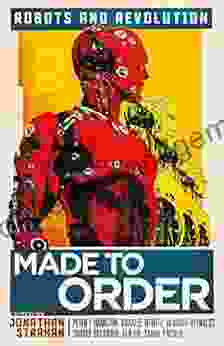
 Braden Ward
Braden WardMade to Order Robots and the Coming Revolution
Robots are becoming increasingly common...
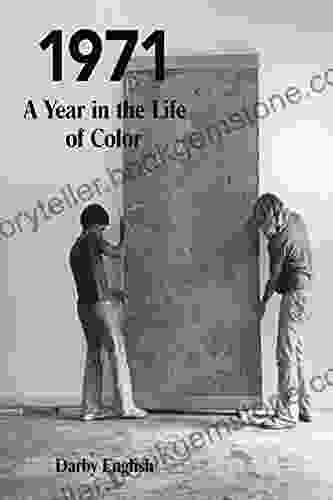
 Clay Powell
Clay Powell1971: A Year in the Life of Color
The year 1971 was a pivotal one for color....
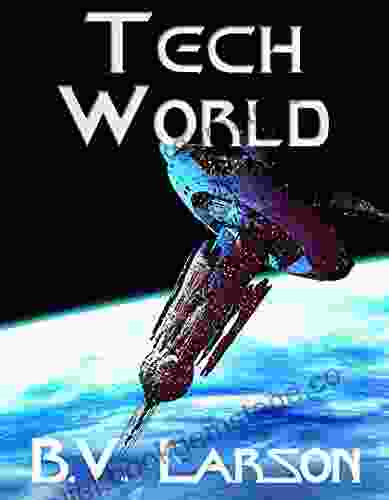
 Ralph Waldo Emerson
Ralph Waldo EmersonTech World's Undying Mercenaries: A Deep Dive into the...
In the ever-evolving landscape of the...
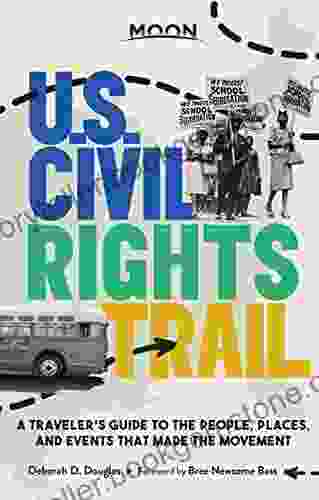
 Wade Cox
Wade CoxThe Ultimate Traveler's Guide to the People, Places, and...
Travel has always been a part of the human...
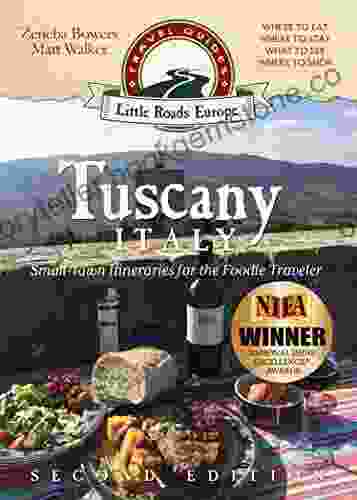
 Evan Simmons
Evan SimmonsA Comprehensive Guide: Uncovering Small Town Culinary...
: A Culinary Odyssey Beyond the City...
4.6 out of 5
| Language | : | English |
| File size | : | 2036 KB |
| Text-to-Speech | : | Enabled |
| Screen Reader | : | Supported |
| Enhanced typesetting | : | Enabled |
| Word Wise | : | Enabled |
| Print length | : | 450 pages |


